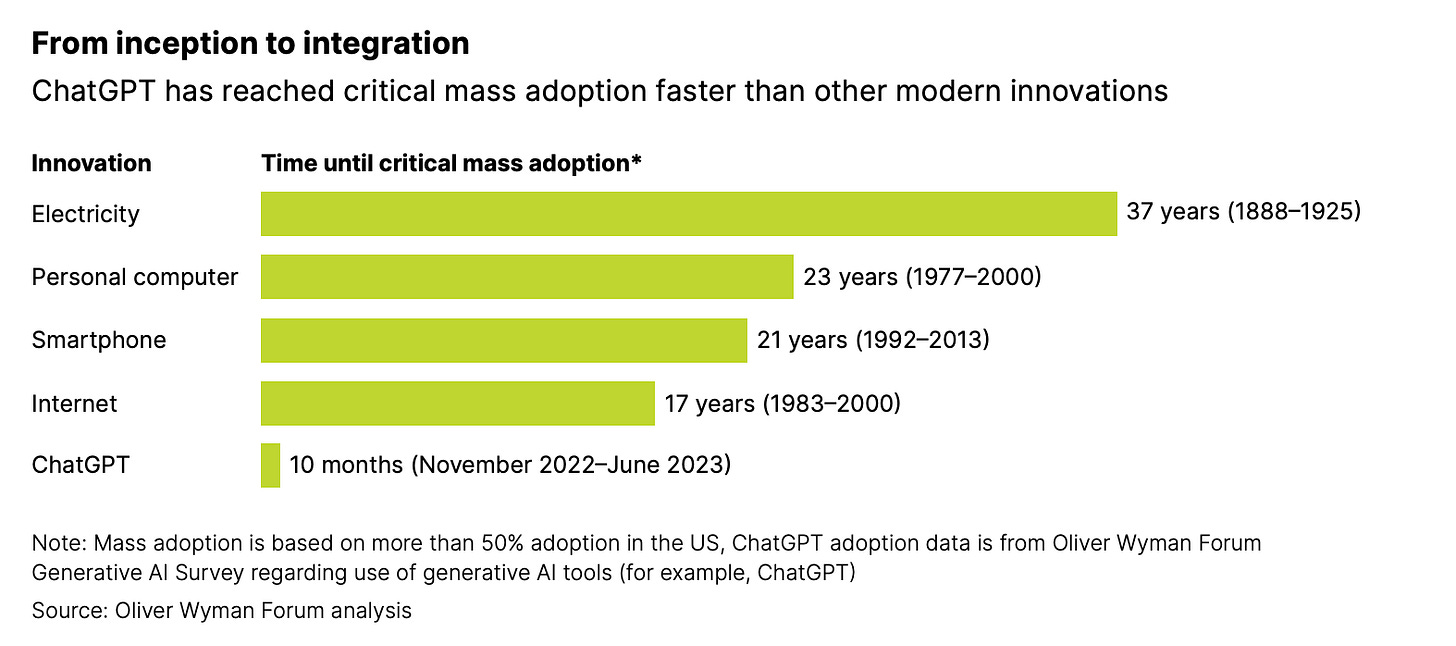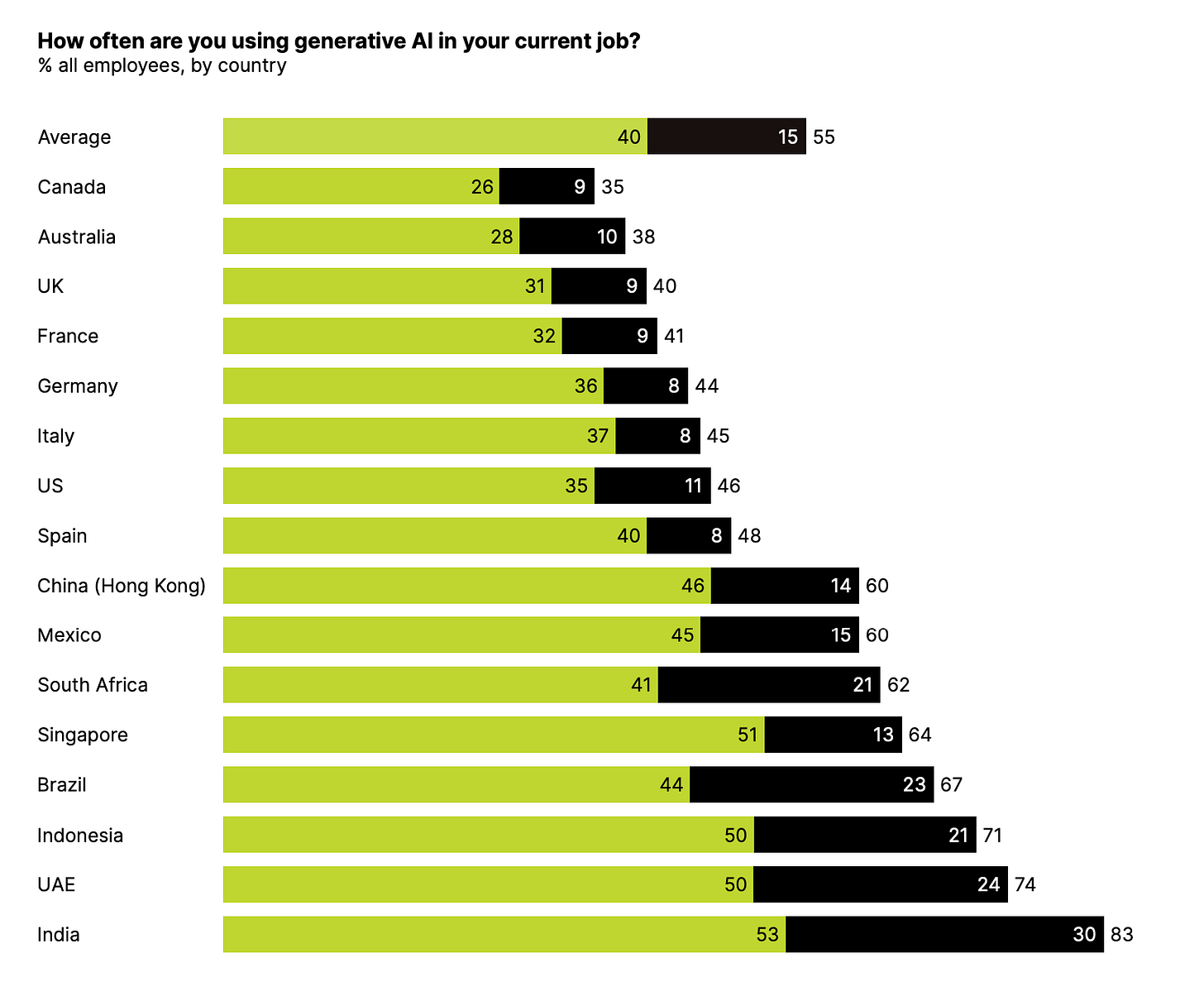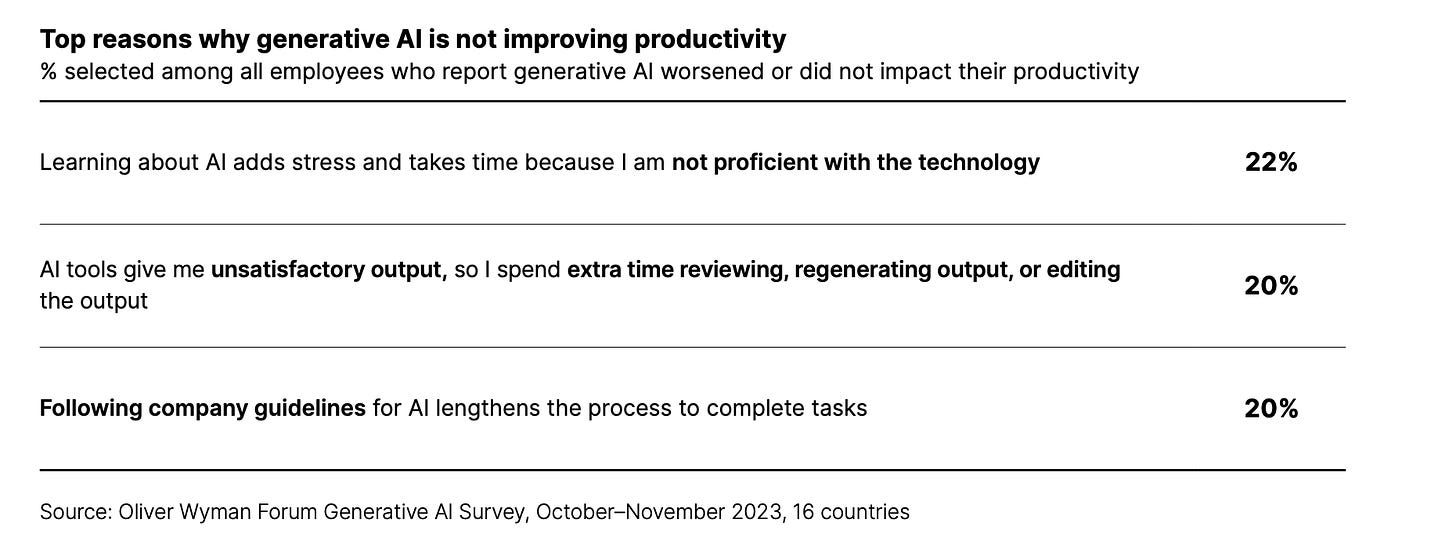Greetings, AI Boost Community,
Apologies for the delay in bringing you my latest Davos edition – it's been a tumultuous week, to say the least. However, in this whirlwind of activity, I'm thrilled to share a personal milestone - I've received a promotion! 🤭
As I sit down to write about the global summits like Davos, which I've yet to attend, I find myself reflecting on a personal aspiration. It's a sincere confession: I am deeply committed to developing my newsletter, Web3 Brew, and advancing my career as a public policy manager. My goal is not just professional growth, but to one day contribute to these prestigious events as a policymaker and writer.
Every bit of support from my readers – your engagement, shares, and promotions – brings me closer to this dream. So, a heartfelt thank you for being part of this journey. Your support means more than words can express.
Each Davos season brings its share of criticism towards the perceived "elite" group. However, I'm choosing to sidestep this debate. Instead, I'll delve into the numerous reports, speeches, and positive discussions that also define the event. If you're interested in the detailed agenda, you can find it here.
This year, blockchain wasn't a major focus, which isn't too surprising. I think in 2025 this presence will be upgraded, we see the greenlight of the bull, right? The spotlight was definitely on artificial intelligence, along with evergreen topics like sustainability and healthcare – themes that will continue to dominate global summits.
The strong presence of Indian and Middle Eastern governments is noteworthy, signifying a shift in tech hubs from West to East.
Today, my focus will be on AI and its potential to reshape both the economy and society. A key concern is the future of work, especially how it intersects with people and finance.
I'll be delving into insights from the Oliver Wyman Forum's AI Report for Davos 2024, which provides an extensive analysis of AI's impact and its future implications. This includes a look at ethical considerations and the integration of AI in the workplace. However, I plan to offer perspectives on the economic and work-related aspects of AI, exploring how it's reshaping our professional and economic landscapes.
The Rise of the AI-conomy: A New Economic Paradigm
The COVID-19 pandemic was like a plot twist in the world's economic story, flipping the script and introducing us to the gig economy. This wasn't just a change; it was a whole new scene where traditional work got a makeover, and flexibility became the new black. Fast forward to now, and we're standing at the edge of another big shift – welcome to the era of the AI-conomy.
Picture this: generative AI is about to pump a mind-blowing $20 trillion into the global economy by 2030. That's not just a financial facelift; it's like giving the economy a jetpack. The AI-conomy is set to save us 300 billion work hours every year. Yes, you read that right. We're talking about a productivity revolution here.
In this brave new world, the gig economy's love for flexibility and independence is getting a high-tech upgrade. People are grabbing the reins of their work lives, thanks to AI opening doors to new digital opportunities. It's like the gig economy, but with a tech-savvy twist, adapting and thriving in the AI playground.
But let's not sugarcoat it – the shift to an AI-conomy has its share of drama, especially in the job market. AI is the new star on the block, promising to boost productivity and create exciting job roles. But it's also got some worried about job security, particularly those in white-collar gigs. Here's the plot twist, though: the AI-conomy isn't just about swapping humans for robots. It's about teaming up, enhancing human skills, and writing a story of a more dynamic, efficient, and economically vibrant future.
So, as we turn the page to this new chapter, the AI-conomy invites us to reimagine work, not as a solo act, but as a duet with technology, harmonizing to create a symphony of innovation and growth.
But, what about adapting this new economy to people? This article might take your attention: Reskilling Revolution: Preparing 1 billion people for tomorrow’s economy
When discussing new technologies, we often focus on job displacement, but let's shift gears and look at AI's benefits, particularly its impact on our productivity. Think about ChatGPT's adoption – it's not just a step forward; it's a giant leap. This isn't just about numbers on a graph; it's about how ChatGPT is rewriting the rules of our workdays, making things more efficient and, dare I say, a bit more interesting.
GenAI's productivity potential:
Boost in Global Work Efficiency: Generative AI could potentially save up to 300 billion work hours annually, revolutionizing labor productivity.
Enhancing Creativity and Thoughtful Work: By automating routine tasks, it frees up time for workers to engage in more creative and strategic activities.
Widespread Adoption Across Industries: Since the launch of ChatGPT, generative AI's use has rapidly expanded, showing a 62% increase across various job sectors
Cross-Border Reach: Its adoption isn't confined to specific regions, with countries like India and the UAE showing high usage rates and governmental support for AI initiatives. (This trend could explain the significant presence of Middle Eastern and Indian bureaucrats at Davos, highlighting a shift in technological focus and innovation to these regions.)
Employees are currently in the early stages of experimenting with generative AI, primarily incorporating it into their individual tasks rather than rethinking broader organizational processes.
Current obstacles:
Reflect on the concept of the AI-conomy. Do you foresee AI leading to entirely new job categories? If so, what kinds of jobs do you imagine?
To drive more efficient adoption of generative AI, companies should focus on the needs of individual workers and consider how work itself is changing. Many users initially learn AI tools independently, but a significant number don't employ best practices. This gap presents an opportunity for targeted education and skill development. Moreover, rethinking work design is crucial. Instead of focusing solely on technology, organizations should understand the nature of work and redesign processes to integrate generative AI effectively, enhancing efficiency and fostering human creativity.
So, the transformation of workforce structures due to generative AI is becoming a compelling topic. Workers have always had concerns about how technological advancements might impact their jobs, a sentiment dating back to the Industrial Revolution. Today, generative AI is poised to reshape job hierarchies and necessitate a rethink of skill distribution, especially for entry-level roles.
The challenge lies in how transactional, relational, and expertise-related tasks will evolve with AI integration, leading to potential productivity gains. A key question is whether these gains will be used to benefit broader society or mainly enhance corporate bottom lines.
To fully realize generative AI's potential for large-scale productivity, it may be necessary to reevaluate and restructure work at the organizational level.
Rethinking the job pyramid:
Impact on Entry-Level Roles: Entry-level positions, especially in customer service, face potential replacement by AI-powered tools, reshaping the initial steps of career paths.
Transformation of Managerial Roles: As generative AI takes over routine tasks, the traditional middle manager role may diminish, altering the career progression ladder.
Reskilling Revolution: A significant portion of the workforce will require new skills due to the impact of AI, presenting challenges for employers and employees alike.
Shift in Skill Prioritization: There is a disparity in skill prioritization between employers and employees, with a focus on both technical skills like AI and soft skills such as creative thinking and leadership.
Wrapping this up, the AI-conomy is not just a buzzword; it's the new reality. It's reshaping not just what we do at work, but also the big bosses' thinking caps. As business leaders, diving headfirst into GenAI before anyone else is the name of the game. It's about being the captain of the AI ship, steering through the seas of change with a mix of wisdom and a dash of humor. Training in GenAI? Absolutely essential. Using AI for the greater good? Non-negotiable. For those who want to stay afloat and thrive in this wave of change, the Oliver Wyman Forum's AI Report is like the trusty compass – it’s got the insights, the tips, and yes, even the warnings. Embrace it, laugh a little, and let’s make AI work for us, not against us.
Stay updated, stay ahead. Subscribe to AI Boost, and if you find our insights valuable, please share with your network. 👀












